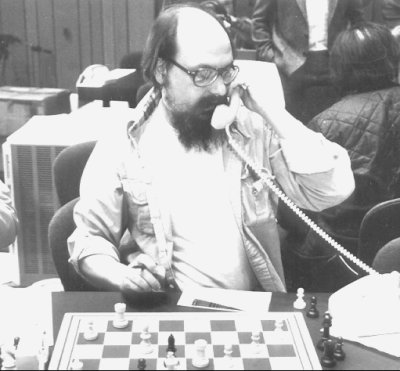The New Yorker has done a fair share of excellent technology reporting in its history, but in that category you can’t include mocking commentary about computers in general and computer chess in particular by Jacob R. Brackman in the June 11, 1966 issue. An excerpt from the piece (paywalled here):
“It stands to reason that before any mileage of wires and tubes occupies our desk and sends us scurrying off to ‘retrain for tomorrow’s jobs’ (whatever they may be) it will have mastered at least the intellectual activity characteristic of children and, in some cases, animals–playing games, recognizing patterns, solving easy problems, reading sentences. With the help of the press, a few noisy researchers in the field of artificial intelligence have fostered the impression that such modest feats can indeed be performed by machines today. A wellspring of this scientific mythology seems to be a historic talk delivered in 1957 by H.A. Simon, one of the the grandfathers of artificial intelligence. ‘It is not my aim to surprise or shock you–if, indeed, that were possible in an age of nuclear fission and prospective interplanetary travel,’ Mr. Simon said. ‘But the simplest way I can summarize is to say that there are now in the world machines that think, that learn, and that create. Moreover, their ability to do these things is going to increase rapidly until–in a visible future–the range of problems they can handle will be co-extensive with the range to which the human mind has been applied.’ Mr. Simon went on to predict that within ten years a digital computer would (a) win the chess championship of the world (unless barred, by rule, from competition), (b) discover and prove an important new mathematical theorem, (c) write music praised by critics, and (d) programmatically express most theories in psychology.
Well, we’ve just come across a lovely paper by Hubert L. Dreyfus, a professor at the Massachusetts Institute of Technology, which says computers can’t, and won’t. With Mr. Simon’s decade almost up, we learn, a recurrent pattern has plagued artificial intelligence in every field it tackles: dramatic early success followed by unforeseen problems and then by disenchantment. In game playing, for instance, researchers developed a checkers program, about ten years ago, that was able to beat an ex-champion from Connecticut. In chess, however, where the number of possible moves and responses is so much greater, computer programs bogged down in the problem of exponential growth. A computer’s attention cannot be attracted by areas on the board that look interesting. It cannot zero in on possibilities that appeal to a sort of ‘fringe consciousness.’ It can only count out alternative moves on an ever-branching tree of possibilities. At about the time of Mr. Simon’s grand prognostication, a group at Los Alamos devised a chess program that played an inferior, though legal, game on a reduced board. Ever since that program beat one weak opponent, the forecasts of impending master play have grown increasingly emphatic, but no computer developed in the intervening years has failed to play a stupid game. A highly publicized program, in its latest recorded bout, was defeated in thirty-five moves by a ten-year-old novice. Yet the projected world championship is only a year off.”

